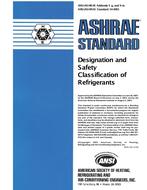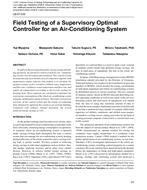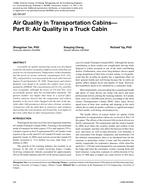The heat input required to defrost coils within refrigerated spaces is partially removed with the melt, partially warms the coil and refrigerant, and partially escapes to the refrigerated space as sensible heat by convection and radiation or as latent heat by evaporation and sublimation. The evaporated and sublimated portion returns again both as a refrigeration load and as part of another defrosting cycle.
This report describes results of the first phase of a multiphase investigation intended to quantify the heat loads associated with defrosting industrial freezer coils using the hot-gas defrosting method. In order to be complete and reliable, coil defrosting data must provide the frequency and duration of defrost and must be correlated with the sensible, latent, and net refrigeration loads. Furthermore, these data must identify the pertinent psychrometric conditions of the complete refrigeration/defrost (R/D) cycle. This phase of the project emphasizes to some extent this psychrometric aspect of the problem in an attempt to understand some of the science involved. It also describes in detail the experimental test facility which was designed and constructed for that purpose as well as the experimental procedures employed in the data acquisition and reduction stages. Based on the testing results obtained for three entering air dry bulb temperatures (EAT), a more detailed study for a subsequent phase is proposed.
Product Details
- Published:
- 1997
- Number of Pages:
- 306
- File Size:
- 1 file , 8.7 MB
- Product Code(s):
- D-RP-622


